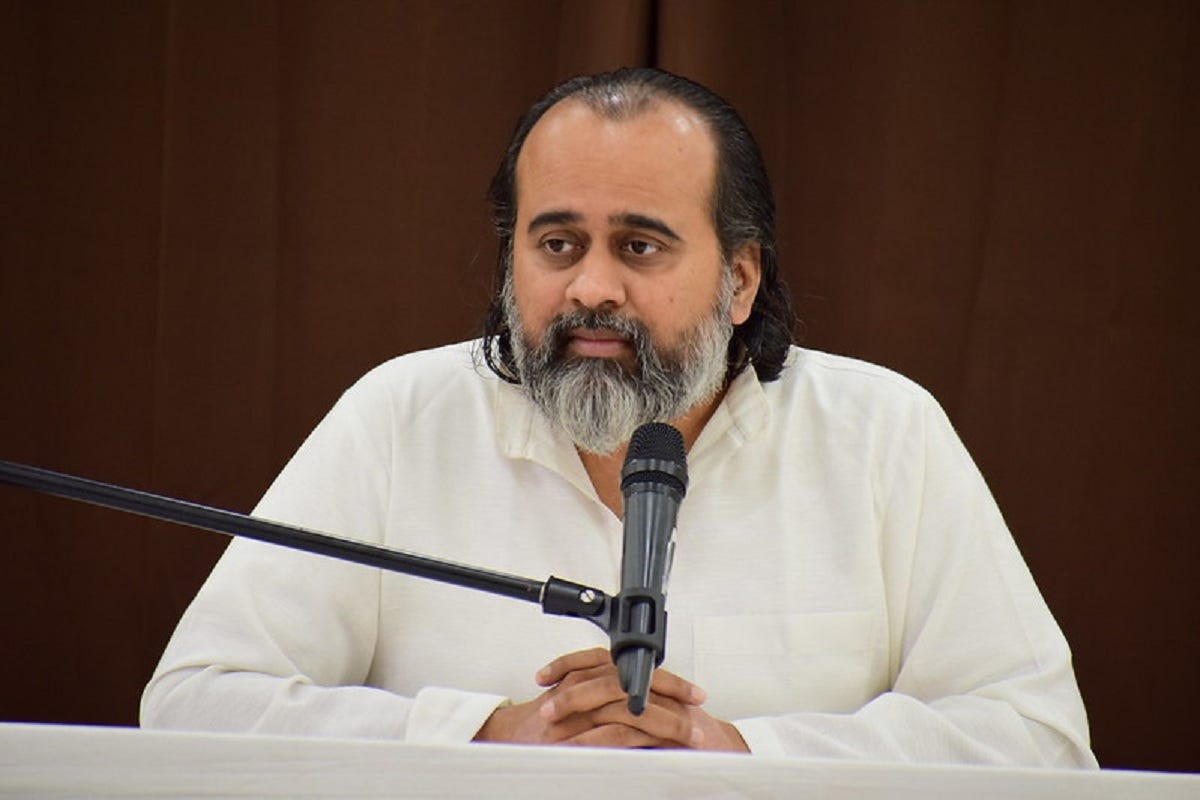Acharya Prashant, a contemporary spiritual teacher and philosopher, has emerged as a significant voice in the realm of self-inquiry, spirituality, and philosophy. Through his teachings, discourses, and writings, he offers insights into the nature of the self, the human condition, and the path to inner transformation. In this exploration, we will delve into the life, teachings, and impact of Acharya Prashant.
Early Life and Education
Acharya Prashant, also known as Prashant Tripathi, was born and raised in India. While specific details about his early life are not widely available, it is known that he had a conventional education and pursued academic studies in engineering. Despite his academic pursuits, Prashant’s spiritual quest began at a young age, driven by a deep longing to understand the mysteries of existence and the purpose of life.
Awakening and Spiritual Journey
Prashant’s spiritual journey took a decisive turn when he encountered the teachings of ancient sages and realized the limitations of conventional knowledge in addressing the fundamental questions of human existence. Inspired by the wisdom of spiritual masters such as Sri Ramana Maharshi, J. Krishnamurti, and Advaita Vedanta, Prashant embarked on a journey of self-inquiry and introspection.
Through intense introspection and contemplation, Prashant underwent a profound spiritual awakening, transcending the boundaries of egoic identity and experiencing a profound sense of interconnectedness with all of existence. This awakening marked the beginning of his journey as a spiritual teacher and guide, as he sought to share the timeless wisdom he had realized with others seeking truth and liberation.
Teachings and Philosophy
Acharya Prashant’s teachings are deeply rooted in the tradition of Advaita Vedanta, a non-dualistic school of Hindu philosophy that emphasizes the essential unity of the individual soul (Atman) with the ultimate reality (Brahman). However, Prashant’s approach transcends sectarian boundaries and draws inspiration from various spiritual traditions, including Buddhism, Taoism, Sufism, and the teachings of contemporary mystics and philosophers.
At the core of Prashant’s teachings is the invitation to engage in self-inquiry – a rigorous process of questioning and investigation aimed at uncovering the true nature of the self and transcending the illusion of separateness. He emphasizes the importance of direct experience over mere intellectual understanding, encouraging seekers to inquire into their own direct experience of reality rather than relying solely on scriptures, doctrines, or beliefs.
Prashant’s teachings cover a wide range of topics, including the nature of consciousness, the ego, desire, suffering, love, freedom, and the art of living. He offers practical insights and guidance on how to navigate the challenges of everyday life with wisdom, compassion, and clarity, while remaining anchored in the truth of one’s essential nature.
Modes of Transmission
Acharya Prashant employs various modes of transmission to share his teachings with seekers around the world. These include public discourses, Satsangs (spiritual gatherings), retreats, workshops, online courses, writings, and one-on-one interactions. Through these diverse mediums, he reaches a wide audience spanning different cultural, linguistic, and geographical backgrounds.
Prashant’s discourses are characterized by their clarity, depth, and directness. He uses simple language and everyday examples to elucidate profound spiritual truths, making them accessible to people from all walks of life. His Satsangs often involve dialogue and inquiry, inviting participants to engage actively in self-exploration and reflection.
Impact and Influence
Acharya Prashant’s teachings have had a profound impact on countless individuals seeking meaning, purpose, and inner fulfillment. Many of his students and followers attest to the transformative power of his teachings in their lives, experiencing greater clarity, peace, and joy as a result of their engagement with his wisdom.
Prashant’s message resonates particularly with those disillusioned with conventional modes of religious and spiritual practice, offering a fresh perspective that transcends dogma, ritual, and cultural conditioning. His emphasis on direct experience and self-inquiry empowers seekers to liberate themselves from the shackles of conditioned thinking and societal expectations, paving the way for authentic self-discovery and spiritual realization.
Criticisms and Controversies
As with any spiritual teacher or philosopher, Acharya Prashant has faced criticisms and controversies from various quarters. Some critics have questioned the authenticity of his spiritual realization and the efficacy of his teachings, while others have raised concerns about his style of teaching and the commercialization of spirituality.
Additionally, Prashant’s willingness to challenge traditional beliefs and societal norms has led to friction with certain religious and cultural institutions. His uncompromising stance on issues such as caste, gender equality, and social justice has sparked debates and discussions within both spiritual and secular circles.
Conclusion
Acharya Prashant stands as a contemporary torchbearer of the timeless wisdom of the sages, offering seekers a roadmap to inner freedom, peace, and fulfillment in an increasingly complex and fragmented world. Through his teachings, he invites us to question our assumptions, transcend our limitations, and awaken to the boundless potential that lies within each of us.
As we journey through life, grappling with the existential questions that define our humanity, Acharya Prashant’s voice serves as a guiding light, illuminating the path to self-realization and ultimate liberation. Whether through his discourses, writings, or personal interactions, his message resounds with the timeless truth that lies at the heart of all spiritual traditions – the truth of our essential unity with the infinite and the eternal.






